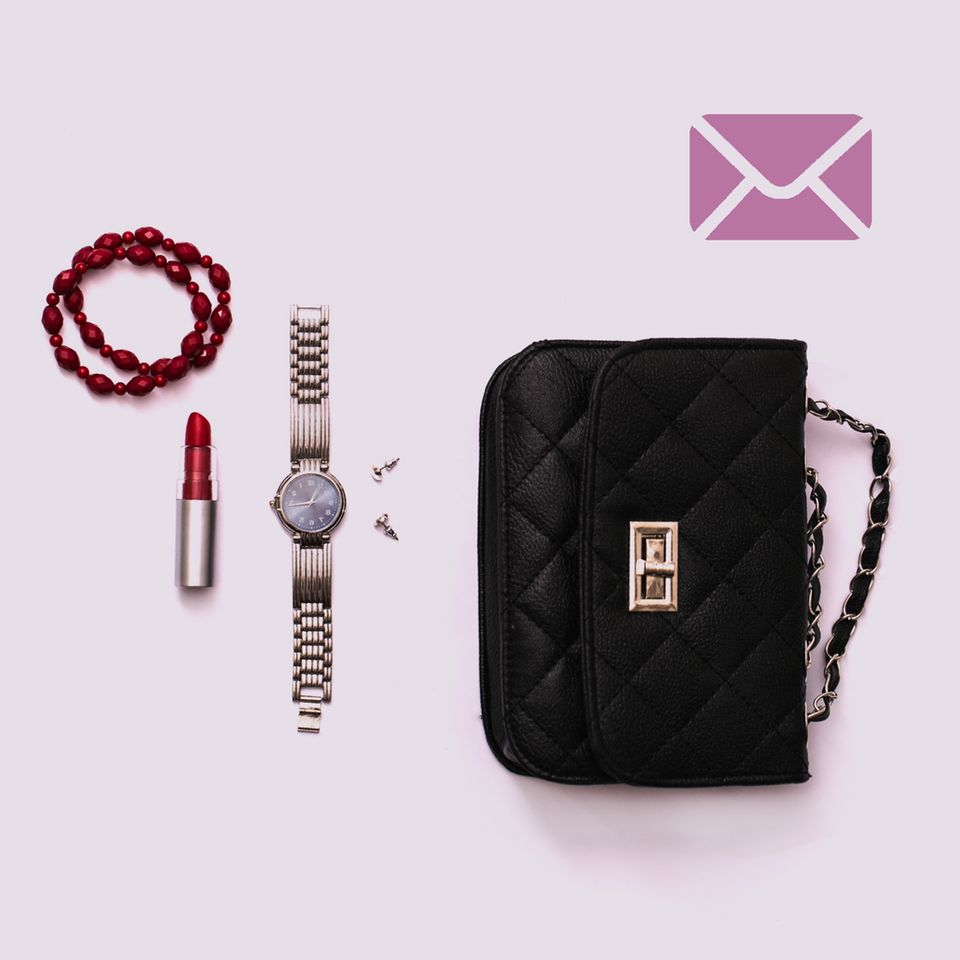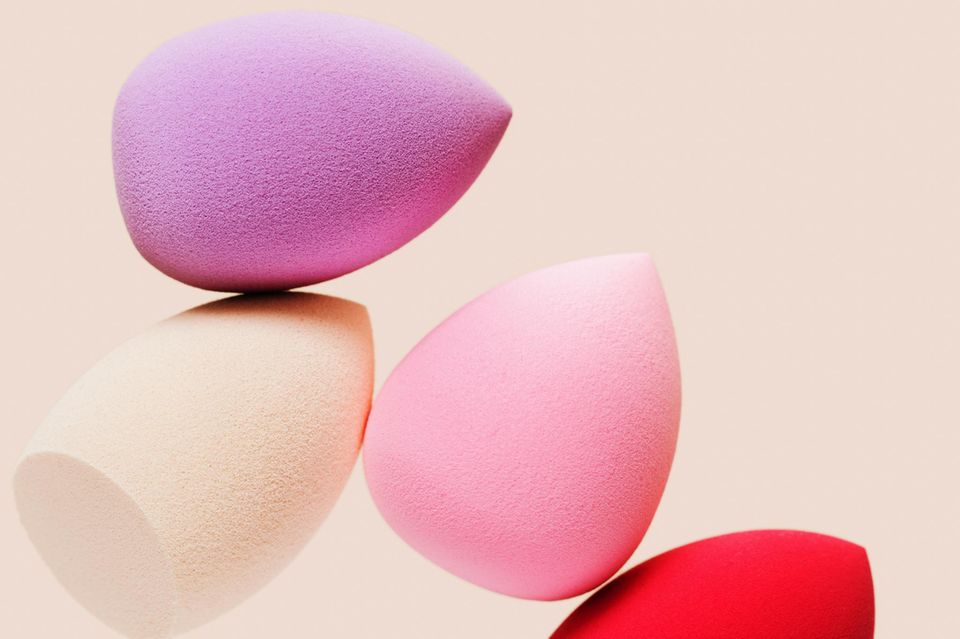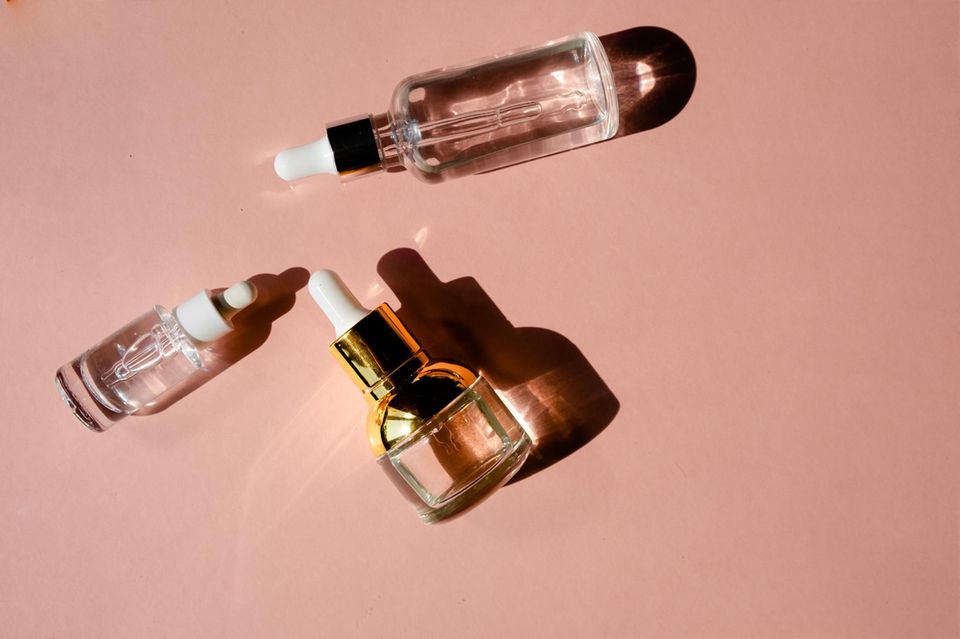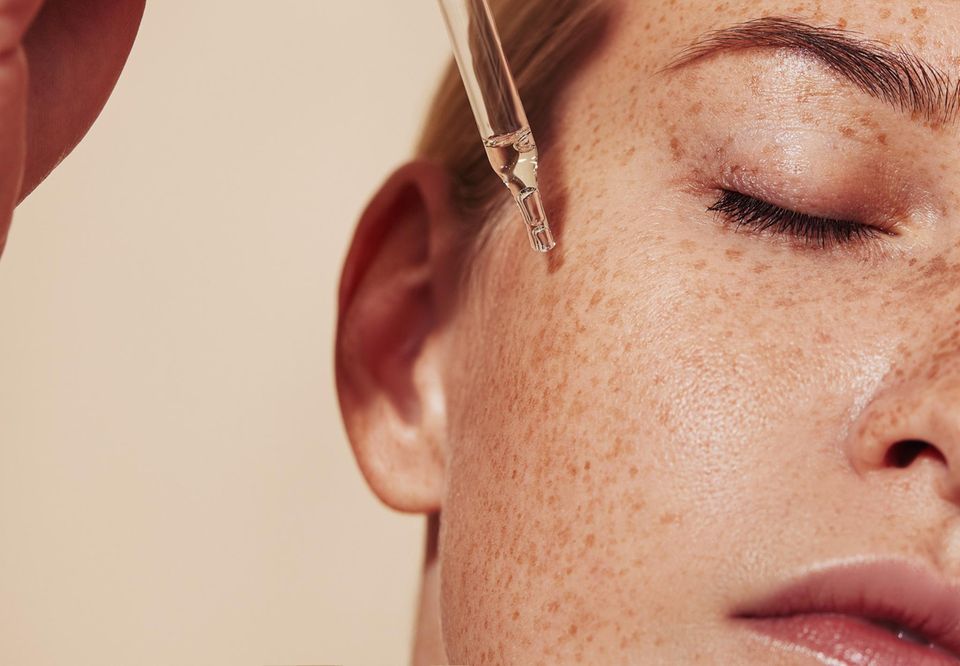Hair, makeup, and skincare: What's true and what's false? Experts debunk beauty myths

We hear it again and again: It's better to air-dry your hair, makeup clogs your pores... But is it true?
False: Patients with over-cared skin are a daily occurrence in dermatology practices. Those who tolerate their extensive beauty routine well don't need to change anything. But: "It's not uncommon for skin to react to too many cosmetics with dryness, tightness, itching, burning, or breakouts. Those with sensitive skin prone to rosacea and combination skin should be especially cautious about using too many products and skincare steps," says Dr. Yael Adler, dermatologist and one of our experts in the new "BRIGITTE Skin Code" course. "This also applies to cleansing: Over-exerting and overly aggressive washing is also the cause of many skin problems."
Daily exfoliation brings glowNot true: Too often is usually too often, and instead of glowing, it results in a damaged protective barrier. Once or twice a week is enough – and not every skin benefits from it. Exfoliants can be particularly useful for skin with keratinization disorders, for example, reducing blemishes. And: It's better to avoid products with abrasive particles, i.e., mechanical exfoliants, on your face. These can be irritating. Enzymes, AHAs, and salicylic acid are more recommended.
Make-up clogs poresIt depends on the product: If its ingredients are "comedogenic," this can happen. Mineral oil-based substances such as paraffins, as well as animal fats such as lanolin, and certain plant-based substances such as cocoa butter, coconut oil, and sometimes olive oil, are considered highly comedogenic. Aloe vera, hyaluronic acid, panthenol, niacinamide, jojoba oil, grape seed oil, almond oil, and shea butter, on the other hand, fall into the "non-comedogenic" category. Whether and which of these ingredients are contained in a makeup product is revealed by the so-called INCI list on the outer packaging.
Makeup brushes can, but do not have to, be cleaned daily.
© yrabota / Getty Images
Wrong. Vitamin D, for example, is hardly absorbed through food; the body produces most of it itself through exposure to sunlight. And in fact, according to the German Nutrition Society, around 60 percent of the population is deficient in vitamin D. Supplementation can be beneficial in these cases. The same applies to the trace element selenium. Whether vegetables contain sufficient amounts of it depends on the quality of the soil, which is often inadequate. Also often in short supply despite a healthy diet: Omega-3 fatty acids.

Does your skin look dull or lose its elasticity? Discover the skin course with Dr. Yael Adler! Learn your skin's needs and develop your own skincare routine.
No, acne is a skin disease and requires medical treatment. It is caused by increased sebum production and excessive keratinization of the pores, an excess of acne bacteria, and inflammation. Cosmetics can be supportive, for example with fruit acids. "However, the deeper sebaceous glands can only be reached through dietary adjustments, nutritional supplements, and medications for internal use," explains dermatologist Dr. Yael Adler. "A doctor can also prescribe very effective acne creams and gels." Also helpful: Changing your contraceptive method—some people experience acne due to an unsuitable pill or hormonal IUD; and avoiding cow's milk, white flour, sugar, and fast food. Iron levels, vitamin D, zinc, omega 3, and selenium should also be balanced.

No, the sebaceous glands are located so deeply in the scalp that washing more or less often has no effect on their function. However, daily shampooing with overly harsh products can disrupt the skin's barrier, thus promoting irritation. However, if everything on the scalp is in balance, frequent washing with a mild shampoo won't do any harm.
Air drying protects the hairNot true, because wet hair is significantly more sensitive than dry. So, if possible, avoid sleeping with it on – otherwise, the friction on the pillow will roughen the delicate surface. Many hairdressers generally recommend blow-drying after washing – especially for very fine, damaged, and/or colored hair. However, since high temperatures are also a stress factor, it's better to use warm rather than hot blow-dryers and use heat protectant beforehand. Apply it as carefully as possible to avoid damaging just the top strands.
Active ingredients should be high dosesNot always. High doses of vitamin C can be useful for lightening pigment spots, for example. "However, only as a short-term treatment, otherwise it can be too irritating," explains active ingredient expert Dr. David Hauck. Too much retinol can also be irritating, which is why facial cosmetics should only contain a maximum of 0.3 percent. The following applies to UV filters, especially on outdoor days: the higher the dose, the better the protection. However, an SPF of 100 is the limit; at that point, the filters can no longer be easily incorporated into a cream.
The most important thing to remember about UV filters is that the higher the dosage, the better the protection.
© Elina Kovtunova/Getty Images
Definitely, for the environment: "Nature knows its substances and can break them down," explains Dr. David Hauck, whose research institute specializes in the development and quality assurance of natural cosmetics. "Synthetic compounds, on the other hand, are often built for stability, making them difficult to break down." Are natural cosmetics gentler on the skin? In principle, yes, but fragrances can be a problem. "Natural fragrances are less durable than synthetic ones and break down more quickly. The resulting degradation products can trigger allergies," says Hauck. Therefore, discard any opened natural cosmetic product, especially jars, after twelve months.
See what's goodIn the new online course "BRIGITTE Skin Code – 28 Days to Radiant and Rejuvenated Skin," dermatologist and nutritional medicine expert Dr. Yael Adler shares many more tips on how to best care for your skin inside and out. Together with BRIGITTE Beauty Director Merle Rebentisch-Bernin and makeup artist Serena Goldenbaum, she'll share new things to learn and try every day. This way, you'll become your own skin expert, step by step.
Finding the ideal skin care is not always easy.
© Youngoldman / Getty Images
Of course, it's important to maintain cleanliness. But: If we cleanse our skin too often, with intensive degreasing products, frequent exfoliations, and/or water that's too hot, this attacks the protective lipid film of its barrier. Even "blemished" skin isn't the result of poor hygiene. Quite the opposite: Washing more often weakens its natural defenses, which essentially opens the door to acne bacteria and inflammation. Makeup brushes, on the other hand, can be cleaned daily, but don't have to be. "If the skin is healthy, an unwashed brush won't cause any harm, even if it's been used for weeks," explains dermatologist Dr. Yael Adler. "For your face, I recommend a separate towel, which should be changed weekly or whenever it gets dirty."
Brigitte
brigitte







